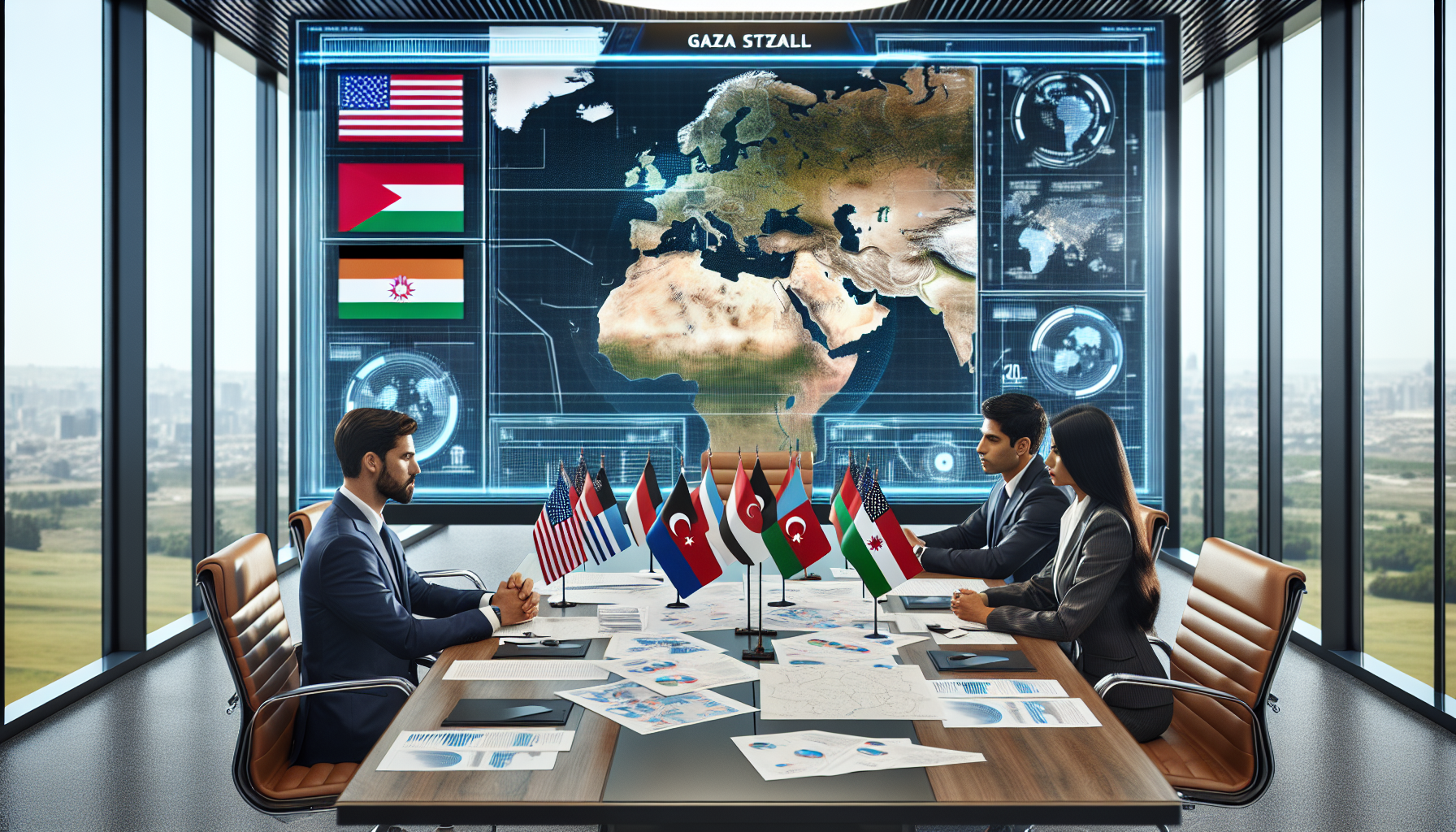Indonesia and Azerbaijan have emerged as front-runners to form the core of a proposed international stabilization force for Gaza, according to Israel Hayom, with U.S. officials telling Reuters that Washington is discussing troop contributions with several countries as part of President Donald Trump’s 20‑point Gaza plan.
An International Stabilization Force (ISF) envisioned in President Donald Trump’s 20‑point plan would deploy to Gaza to help secure the enclave and support reconstruction as Israeli troops draw down. Israel Hayom reported that Indonesia and Azerbaijan are expected to anchor the ISF and that the force could total tens of thousands of personnel. U.S. officials told Reuters that the United States plans to provide up to 200 personnel in support and coordination roles, with no American combat troops entering Gaza.
Indonesia and Azerbaijan would bring distinct strengths. Indonesia is one of the largest contributors to U.N. peacekeeping missions and has long deployed battalions to the U.N. Interim Force in Lebanon (UNIFIL). Jakarta has also said any Gaza deployment would require a clear U.N. mandate, and President Prabowo Subianto recently ordered Indonesia’s military to prepare peacekeepers pending U.N. Security Council authorization. Azerbaijan, meanwhile, maintains close ties with Israel, supplying a significant share of Israel’s crude oil in recent years and purchasing large volumes of Israeli defense systems. SIPRI data, cited by Israeli media, show Israel accounted for a majority of Azerbaijan’s major arms imports in 2016–2020, while Associated Press reporting has detailed the role of Israeli-made systems in Azerbaijan’s victories in the Nagorno‑Karabakh conflicts.
The prospective makeup of the force remains unsettled. Israel Hayom reported that Israel has vetoed Turkish participation and that the United States accepted this position. Reuters separately noted that Prime Minister Benjamin Netanyahu has signaled opposition to Turkish troops in Gaza. Israel Hayom also said Saudi Arabia and the United Arab Emirates declined to join and that Qatar was not considered; however, Reuters reported that U.S. officials are in talks with several governments — including Indonesia, the UAE, Egypt, Qatar and Azerbaijan — about contributions, underscoring that negotiations are fluid.
Diplomatic work is under way to secure a U.N. Security Council resolution authorizing the ISF — a condition Indonesia has emphasized. Israel Hayom reported that France is pushing for language on a Palestinian state in the draft, which Israel opposes, and that Israeli officials remain wary given uneven enforcement of past Council resolutions. According to the same outlet, Israel’s defense establishment has been told to give the U.S.-backed plan a chance while discussions continue over how much operational freedom the Israel Defense Forces would retain to act against Hamas during any ISF deployment.
Prabowo has framed Indonesia’s stance as pairing support for Palestinian statehood with assurances for Israel’s security. In his September 2025 address at the U.N. General Assembly, he said: “We must have an independent Palestine, but we must also recognize and guarantee the safety and security of Israel.”
Azerbaijan’s involvement would add regional complexity given its proximity to Iran and its tight energy and security ties with Israel. For now, the ISF’s composition, mandate and timeline depend on ongoing negotiations among Washington, Jerusalem and potential contributors — and on whether the Security Council can agree on an authorizing resolution.

